A Taitai's World

By Shaun Tan
Founder, Editor-in-Chief, and Staff Writer
18/6/2019

Taitais: See them stepping out of boutiques, shopping bags in hand, designer bag hanging off one shoulder, and stepping into Benzes with tinted windows. See them in great houses, dispatching retinues of servants, or playing mahjong, red nails click-clicking on ivory tiles. See them on magazine racks, smiling glossily out from the covers of Prestige or Tatler. See them in their champagne splendor, at launches or galas or balls, dresses elegant, makeup immaculate, belying their years, defiant against the ravages of time.
Taitais, rich, married Chinese women who don’t work and have a taste for fine living, the Chinese equivalent of “ladies who lunch,” are a common sight in many cities in East Asia, though not all of them like to admit to being taitais.
“I don’t really consider myself a taitai,” said my rich aunt, who stopped work after my cousin was born, 30 years ago, and who’s obviously a taitai. “I consider myself a ‘blessed lady.’”
“I’m not a taitai,” laughed Leeann Lim, a hot Instagram mom, “I’m not sure I am that wealthy to consider myself a taitai.” (She is.)
“I’m not a taitai,” said a family acquaintance I met in Bangsar Shopping Center, the most taitai mall in Kuala Lumpur, clad in pearls and fine clothes and looking every inch a taitai. “Many of my friends are taitais, but I’m not, because, whilst I don’t work, I don’t have any maids.”
“Many of my friends are taitais, but I’m not, because, whilst I don’t work, I don’t have any maids.”
Some others are more forthcoming. “Yes, I consider myself a taitai since marriage,” said Eva Mok, a family friend. “Yes, I’m a taitai,” said Teresa Chan, wife to Chan Thye Seng, principle shareholder at Pacific & Orient, a Malaysian financial services and IT company, “but I am such a boring taitai. I like to relax and go on holidays, but I don’t like all these social events.”
But why the reluctance of many taitais to identify as such?
Part of it is simply modesty. Because of the connotations of wealth attached to that label, admitting to being a taitai is a bit like admitting to being “an elite” or “a member of the 1%” – even if you are one, it feels weird and immodest to say so.
But it’s also because the term “taitai” has acquired something of a negative connotation, especially in recent years with the increasing popularity of female empowerment.
“Women don’t like being [called] taitais because of the implication that you don’t wanna work,” said Rebecca of Singapore.
“Taitais?” asked Pei-Shyen Chong of Kuala Lumpur. “They’re money-minded parasites with delusions of grandeur. I would like to think that there is more to life than leading one as shallowly-based as that.”
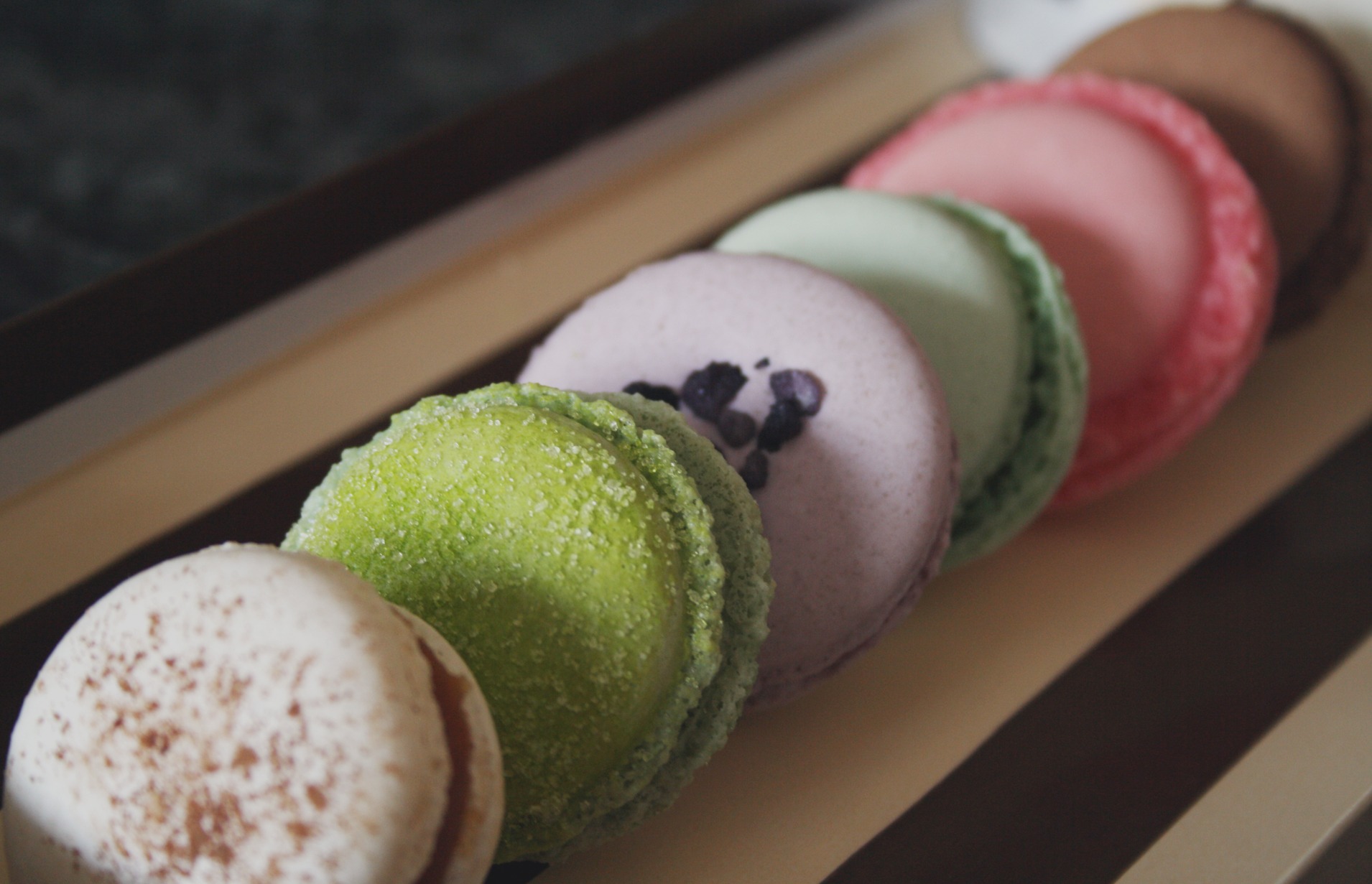
Picture Credit: Saaleha Bamjee
***
The term “taitai” simply means “wife” in Chinese, though over the years, it’s developed the connotations of luxury and leisure we see today – though not in Taiwan, where it’s just used to refer to older married women.
The use of the term “taitai,” in the way we understand it, can be seen back in imperial China, when a taitai was traditionally the lady of a great house, a fate most girls aspired to. Taitais feature heavily in classical Chinese novels like The Golden Lotus, where they flutter around a rich playboy, and Dream of the Red Chamber, where one taitai, distraught, commits suicide by swallowing a gold nugget (which, by the way, must go down as the most taitai way to die ever).
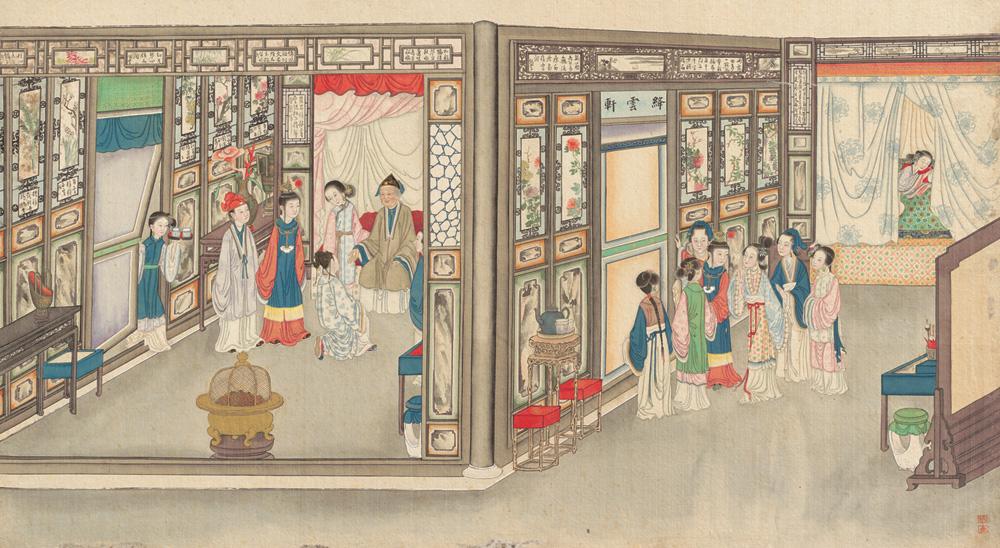
Scene from Dream of the Red Chamber by Qing Dynasty artist Sun Wen. Grandmother Jia, the old taitai, receives people in the center.
Back then, the whole not-working thing was a point of pride, reflecting the wealth of a taitai’s husband, and thus the status of the taitai herself. Another thing that was supposed to reflect wealth and status was a man taking multiple wives and concubines – or so those husbands doubtless told their existing wives when other women moved in.
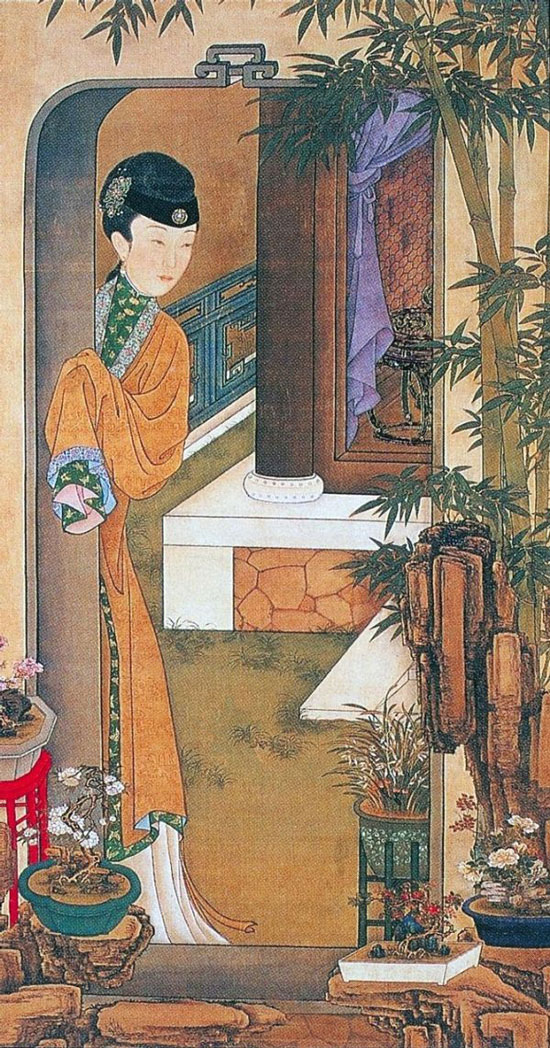
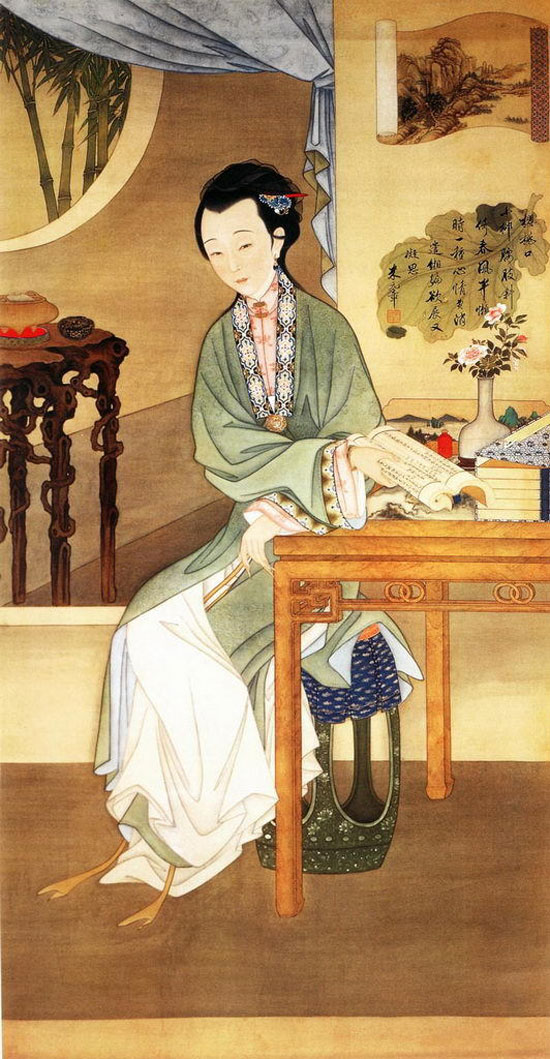
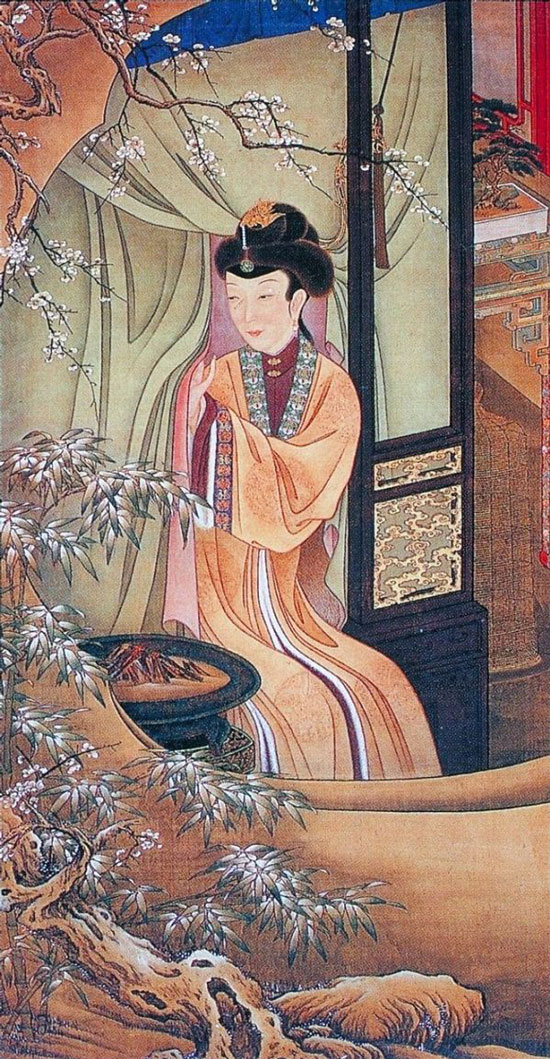
A lot has improved for taitais since then. The decision not to work is now usually one made by the taitai herself, not made for her by her husband or social convention. And, whilst men still sometimes keep other women, at least they now usually have the grace to feel embarrassed about it, and the taitai no longer has to suffer their presence on a daily basis.
So what do they do on a daily basis, then? Well, there are taitais and there are taitais. There are taitais who personify the stereotype, whose days consist of yoga in the morning, long, boozy lunches with other taitais, followed by shopping, followed by high tea, followed by a Cartier launch event, followed by a charity gala. Whose lives are a carousel of parties and retail therapy. Who flit from private clubs, to malls, to five-star hotels. Who entrust their children to their maids before heading to the spa for the day, or Milan for the week.

The Peninsula Hong Kong, famed for its high tea (Picture Credit: TravelingOtter)
Then there are taitais who dedicate themselves chiefly to managing their household and taking care of their kids, even if they might spoil themselves once in a while, who are really homemakers, even if “home” happens to be a mansion or a swanky apartment.
The behavior of taitais also differs across the East Asian countries, ranging from taitais in Taiwan, who, like other rich people there, are a lot more independent and down to earth, to taitais in Indonesia, who are known to check their families into hotels during holidays like Hari Raya Idul Fitri (because their maids return to their hometowns then, and they can’t or don’t want to cook and clean themselves).
The Lobby
The Peninsula Classic Afternoon Tea
A selection of finger sandwiches and savory pastries, home-made Afternoon Tea pastries, freshly baked raisin scones, clotted cream, organic strawberry preserve. Your choice of teas from The Peninsula Tea Collection.
For one person 398, for two persons 718
Add a Glass of Deutz Peninsula, Brut Champagne 220
Prices are subject to 10% service charge and are in Hong Kong dollars.
The boundaries of taitaihood sometimes blur, especially when taitais use the considerable resources at their disposal to start their own businesses, which they sometimes do. After all, a taitai who runs her own business is no longer a taitai, but a businesswoman.
For example, Jamie Chua, the Singapore Airlines flight attendant who married Indonesian Nurdian Cuaca and became famous for her $450,000 monthly alimony claim when she split with him, her 700-square foot walk-in closet, and the fact that she looks in her 30s even though she’s in her 40s (which she credits to her elaborate and expensive beauty regimen), was in many ways the ultimate taitai. However, because she started Cloud 9, a shoe business, with Cuaca whilst she was married to him and later opened the first Manolo Blahnik store in Southeast Asia, she was arguably never a taitai (depending on whether she was seriously working on her businesses whilst she was married). (Chua didn’t respond to requests for comment.)

Jamie Chua
As a general rule, though, a taitai who starts her own business and devotes much of her time to it is no longer a taitai, whilst a taitai who starts her own business, plays with it for a while before getting bored and handing it to someone else to manage, is still a taitai.
Sure, boundaries may blur, behavior may differ from country to country, preferences vary from person to person, and terminology change across time and space, but taitaihood remains a recognizable concept in East Asia, and, for better or worse, an institution.
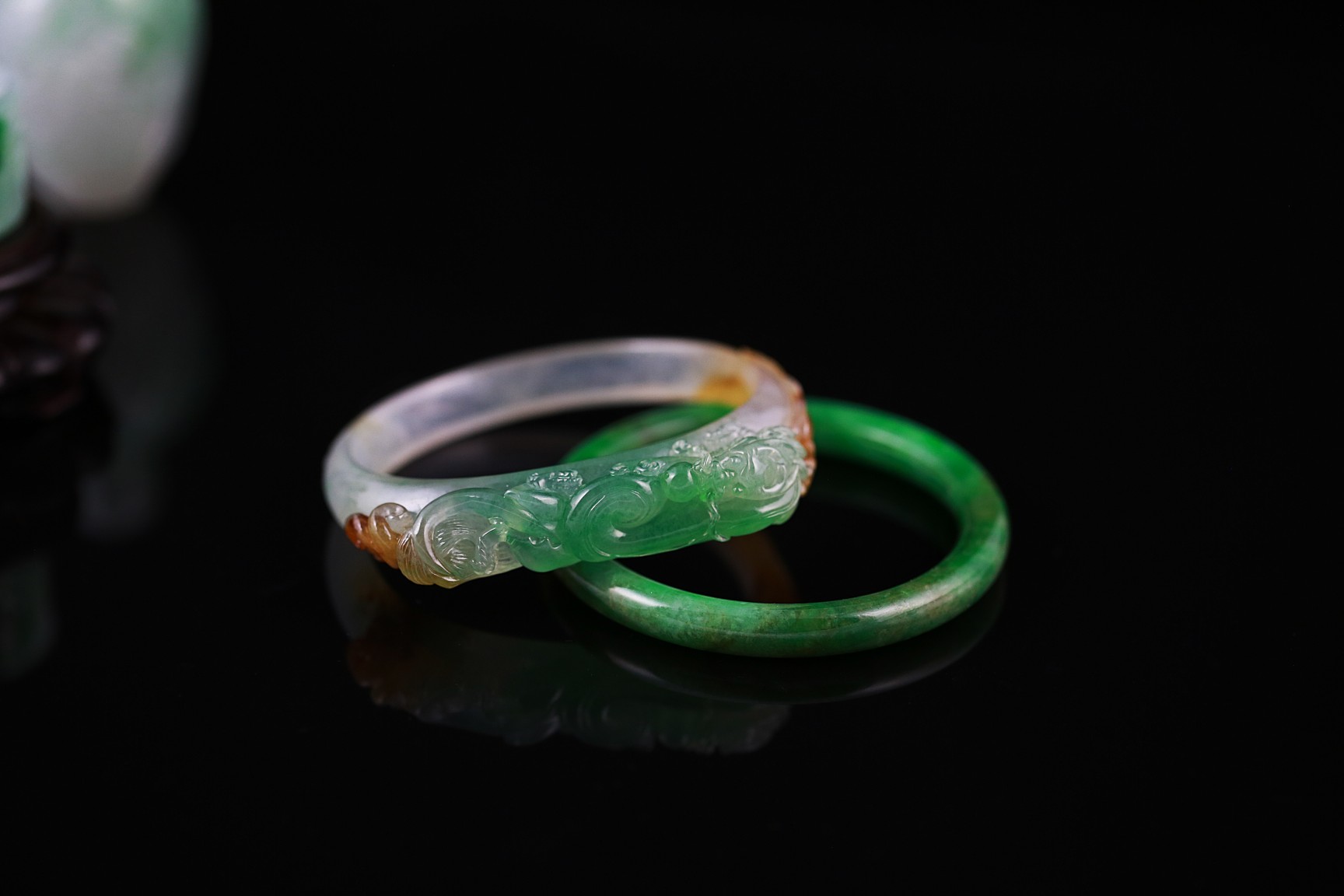
***
But for how much longer? Is taitaihood going out of fashion, becoming antiquated, patriarchal in an age when the trend seems to be leaning in like Sheryl Sandberg, or becoming a #GirlBoss?
Most taitai ways to die:
#1 Swallowing a gold nugget
#2 Choking on a champagne diamond
#3 Trampled at a Black Friday sale
#4 Shame
It doesn’t seem so, at least not for many girls. Out of the 40 or so girls in their 20s or early 30s I interviewed across all the East Asian countries where taitais are found, about half of them said they’d like to be a taitai one day (if they weren’t one already). (Most of these girls also tended to be richer and more educated than the average person in their societies.)
Why? Their answers varied, of course, but the one I kept hearing was simply that work was hard, and boring, and that a taitai life seemed much better.
“Yeah, I’d like to be a taitai,” said Denise Quah of Penang, “I think a lot of girls would want to.”
“Yeah, why not?” said Pei-Shyen Chong of Kuala Lumpur. “Life is short. Even if I wouldn’t admit to it, I’d still accept the jewelry that comes with it – you wouldn’t lose anything apart from a small amount of respect.” When I pointed out that she’d just called taitais parasites a few minutes ago, she replied: “Yeah, but if you’re a taitai, no one dares to call you that to your face.”
“Yes!” said Audrey of Kuala Lumpur. “Because I’m lazy, and [as a taitai] you have freedom to do your own hobbies. I would spend a lot of time exercising. I think the majority of girls would say ‘yes’ too.” Audrey, who works as a regional marketing manager in the healthcare industry, also drew me this matrix in response:

“I guess so, why not?” said Vanessa of Jakarta. “I don’t see what’s wrong with it; you need someone to take care of the house, and be the…glue in the family, especially if you can do it elegantly.”
“If I’m confident in my marriage, I’d be happy to be a taitai,” said Yanki Lee of Hong Kong. “It’s nice to stay with the children and do household things for my husband. Being a taitai is a lot of girls’ dream. You don’t need to suffer from stress.”
Anna (not her real name) of Hong Kong, laughed when I asked her if she’d like to be a taitai someday. “Who doesn’t?”
“At a certain point in my life,” said Kristin (not her real name) of Hong Kong. “Who doesn’t want to be one?”
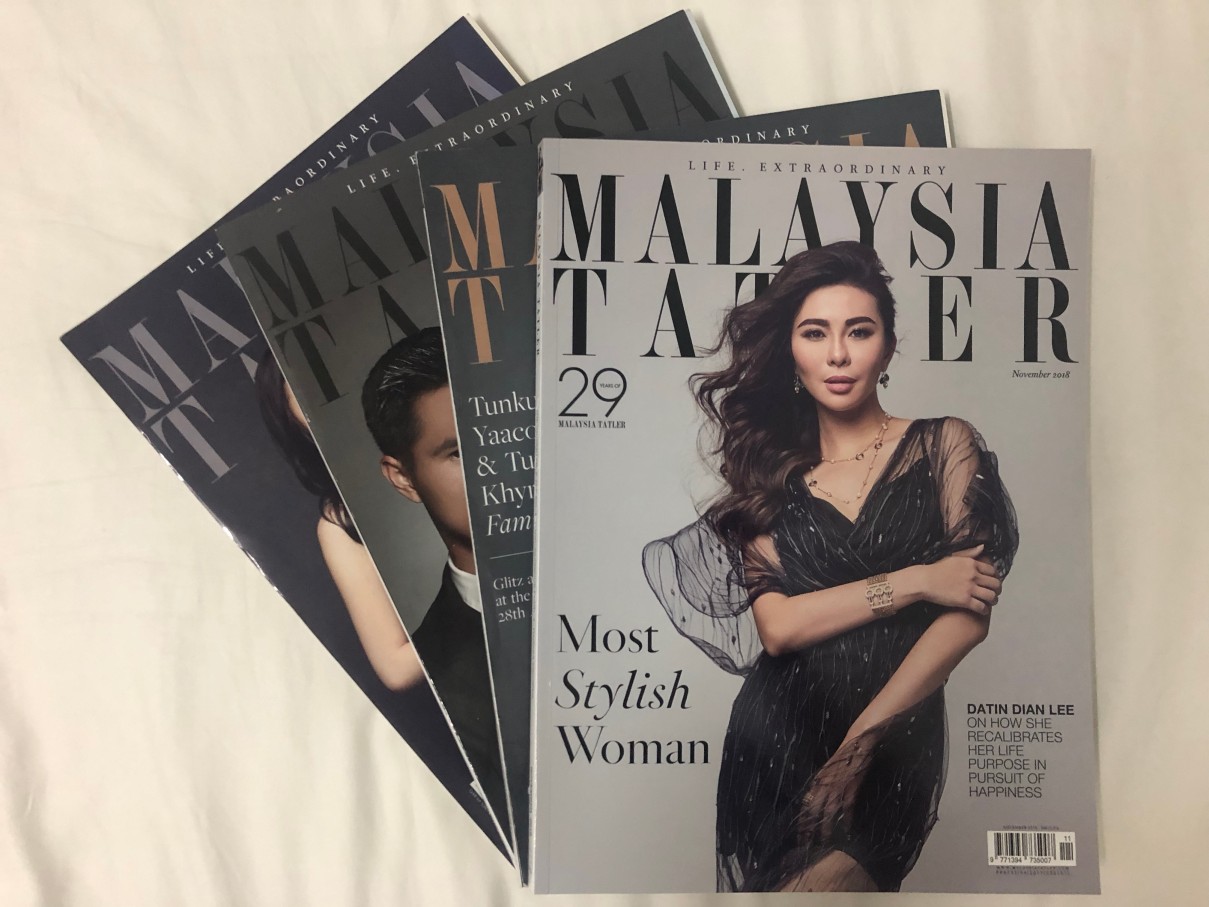
Tatler magazine celebrates the taitai lifestyle
Helen Chen of Taichung was more circumspect. “I don’t set a boundary against it,” she said. “I would consider it.” Chen said the aspiration to become a taitai was especially popular amongst the more local (i.e. less cosmopolitan) Taiwanese girls. “They grow up wanting to be taitais,” she said. “They want to marry rich husbands. Girls look up to that kind of lifestyle.” The appeal to her is obvious. “You don’t have to work, you have a lot of money to spend. All you need to worry about is how to celebrate your baby’s first 100 days.”
Indeed, in an article in Business Weekly, Tilaine Wang wrote about the popularity of taitai life amongst many Taiwanese girls, often fueled by the romantic dramas they watch. Such dreams are hardly restricted to Taiwan, of course – lots of girls grow up with the fairy tale idea of becoming a princess, including marrying a prince and living happily ever after.

Ting Zhao of Beijing said becoming a taitai is a popular aspiration in big cities in mainland China. “Many want to be a taitai,” she said. “It’s viewed as high-status and safe, and it guarantees a future for your kids. But it’s hard to find rich men.”
In more rural parts of China, becoming a taitai is probably even more popular. Indeed, in an article in Aeon, sinologist James Palmer found that even being a mistress to a rich man was one of the most desirable aspirations for rural women.

***
It’s easy to knock taitais and their lifestyle. The most common critiques I hear are that these women are parasites who leech off family wealth, or bimbos who’ve wasted their brains and their education, or that they’ve forfeited their power and security. These critiques, however, seem to idealize the nature of jobs.
The criticism of taitais as parasites who leech off family wealth and contribute nothing of value to society overlooks the fact that many jobs contribute nothing of value to society. In his book, Bullshit Jobs: A Theory, David Graeber, Professor of Anthropology at the London School of Economics, wrote about the phenomenon of what he called “bullshit jobs,” jobs that are completely pointless and add no value to anything. These jobs, he wrote, are common in government bureaucracies, but are also prevalent in the private sector, especially in fields like finance, corporate law, and the media. What’s more, the people doing these jobs often admit how unnecessary they are. “That’s why I quit finance,” said Rebecca, formerly an equities analyst at Credit Suisse, “cos there was just a lot of work for the sake of work.” “How can one even begin to speak of dignity in labor when one secretly feels one’s job should not exist?” Graeber asked. A YouGov poll found that 37% of Britons said their jobs did not “make a meaningful contribution to the world,” and just 50% said it did (the remaining 13% were uncertain). My own experiences with the legal and media fields seem to corroborate this – many of the jobs I performed or came across seemed to do little but waste the money of clients too clueless to know they were blowing it.
The criticism of taitais as parasites who leech off family wealth and contribute nothing of value to society overlooks the fact that many jobs contribute nothing of value.
This criticism also overlooks the contributions of many taitais. Many taitais put so much into managing their household and taking care of their kids that the descriptor “women who don’t work” is something of a misnomer. The work they do is often more arduous than many full-time jobs, the effort they put in often exceeds what they’d put into a job because they have ownership of the result, and, whilst their labor is never monetized, the value they add can be immense. (My own mother, who stopped work after my youngest sister was born, certainly contributed more value as a homemaker than I ever did at all my previous jobs.) In short, the criticism overlooks how poorly the modern economy recognizes and reflects value.

Michelle Yeoh plays taitai Eleanor Sung-Young in Crazy Rich Asians
The criticism of taitais as bimbos who’ve wasted their brains and their education by choosing an understimulating life seriously overestimates the intellect required to perform many jobs, including jobs in supposedly cerebral industries. Indeed, many of the jobs I’ve come across in law and the media (at least in East Asia) seem to be habitually performed below the level one would expect from the average 16-year-old. Whatever our choices in life, we are often overeducated and then underemployed in mindless jobs, where only a small fraction of our brainpower is utilized.
Contrast that to the holistic mental effort that can be required of a taitai, which can include handling such tasks as: taking care of kids, teaching them, helping them with their homework, planning their futures, seeing to the maintenance of homes (plural), seeing to the needs of parents-in-law, managing family collection of paintings / sculptures / silver / bonsai trees, etc – encompassing such fields as cookery, dispute resolution, education, ethics, strategy, interior decorating, management, administration, and accounting. In her article, Tilaine Wang warned that managing a household can be like managing a company, requiring a taitai of a great house to be adept at a range of things, including investing, interpersonal relations, and taking care of valuable gifts. Fairytale endings, she wrote, only capture part of the picture: “Pride and Prejudice only showed Elizabeth marrying Mr Darcy, it didn’t mention how she had to manage his huge family holdings afterwards!”
The personification of this kind of taitai is Wang Xifeng in Dream of the Red Chamber. Fiery, shrewd, cunning, manipulative, ruthless, and charming at will, she runs the great Jia household with the efficiency of a Lee Kuan Yew and politicks with the subtlety of a Cao Cao (Chairman Mao, a devotee of the novel, mused that she would have made an excellent minister of the interior).

Wang Xifeng is a badass
The criticism that taitais have forfeited their power and security by giving up their careers has an element of truth. Many taitais are beholden to their husband (or, in some cases, to their husband’s family) for money. “The ‘big families’ might be quite traditional and you may depend on them for the megawealth – so if you are disobedient they can cut you or [your husband] off,” said Victoria Yue of Hong Kong.
Many taitais are also very afraid of their husbands leaving them for another woman, this fear compounded by the fact that, in many cases, their husbands are the source of their financial security, and that divorce laws in some countries in the region offer them little protection. “Taitais worry about affairs a lot,” said Vanessa of Jakarta. “Especially since guys often have their second puberty in their 50s.”
However, many people with careers hardly appear less helpless or insecure. Vanessa also told me of a friend of hers, an oil executive, who suffers from anxiety and panic attacks because he “feels he can be replaced at any time.” A family friend of mine in her 50s, who never married, worked as a banker in Singapore all these years, yet has lived the past few years in fear of being laid off from her bank (this fear compounded by the fact that she doesn’t get along with her boss) and being unable to find another good job after that. Such is the fate of many people I know, who always feel at the mercy of tyrannical, capricious (and often incompetent), bosses. “[T]he real risk on Wall Street,” wrote William D. Cohan, former managing director at J. P. Morgan Chase, in True Prep, “[is] the risk of a stupid boss who fires you because he decides you haven’t done enough sucking up.” If this is supposed to be power, it doesn’t sound like it. If maintaining a career is supposed to grant you security, why then do so many employees seem terrified that, despite their record, they’re just one termination and bad reference away from professional and financial ruin?
Sure, taitai life may seem unproductive, boring, vapid, and precarious compared to doing a job you’re passionate about, which stimulates you intellectually and benefits society, alongside colleagues and bosses you respect and trust – yet how many jobs even come close to measuring up to this ideal? Most of my friends seem to find their jobs boring and unfulfilling. “It’s a job,” shrugged one, who worked at the central bank of Malaysia and seemed to live for the few weeks a year she got to go on holiday, when I asked her about her work. “I do it because I have to.”
In a sense, I can relate to those who want a taitai life. There are a few things I love doing (like journalism), but if you took them away from me, and made me choose between doing some of the meaningless jobs I did in the past and living like a profligate male taitai (a mantai is the neologism), which I imagine as being something like a full-time playboy, I’d pick the latter any day. And, I’m aware that I’m also in the minority of people who do feel really passionate about something that can bring in money (though even that remains to be seen) – most people I know don’t. “It’s hard for people to find a job you’re passionate about,” said Yanki Lee. “If norms twist, it’s a good [deal] for a guy too – if you can be supported by your wife instead of doing a job that you hate.” Certainly, taitais are in a uniquely privileged position, but isn’t asserting the ennobling effect of even pointless and mindless work against them making a virtue out of a necessity?
Isn’t asserting the ennobling effect of even pointless and mindless work against taitais making a virtue out of a necessity?
Another critique is that taitais have sacrificed their professional ambitions to devote themselves to home and family. “I’d be embarrassed to say I just take care of kids and do yoga, and not have accomplishments to my own name,” said Emma of Kuala Lumpur, who didn’t want to use her real name because she feared retribution from taitais. This goes to the debate between Sheryl Sandberg and Michelle Obama on whether women really can have it all. In a talk, Obama, who quit her job to take care of her daughters after her husband ran for president, disputed Sandberg’s notion that women could “have it all” (i.e. balance all the responsibilities of motherhood with being a leader in their field). “That whole, ‘So you can have it all.’ Nope, not at the same time,” she said. “That’s a lie. And it’s not always enough to lean in, because that shit doesn’t work all the time.”
But is it right to criticize taitais for this decision? “Women have a tendency to be too judgmental and say ‘Oh because you have a rich husband, you don’t have to work,’” said Malisse of Kuala Lumpur of women who give up their careers to be full-time moms. “But now that I’m a mother, I can understand. Being a mom is one of the toughest jobs in the world.”
Perhaps women have a greater propensity to sacrifice their career for their family. “I think women pay more attention to family,” said Lee. “It’s in their genes.”
Or perhaps not. “[L]ove is the bane of honor, the death of duty,” says Maester Aemon to Jon Snow in A Game of Thrones, explaining why their monastic order of (male) guardians (the Night’s Watch) swears to take no wives and father no children so they remain devoted to their charge. “What is honor compared to a woman’s love? What is duty compared to the feel of a newborn son in your arms? We are only human, and the gods have fashioned us for love. That is our great glory, and our great tragedy.” For the Watch, family life is incompatible with honor and duty.

Yup, we went there
Perhaps men, unfettered by financial constraints and social norms, have the propensity to make that same sacrifice, and that propensity can’t be faulted, but is, as Maester Aemon said, an important part of what makes us human.
I know of nothing so simultaneously celebrated and mocked, aspired to and disdained, as taitaihood. When many girls I know talk about it, they usually do so half-jokingly, as if it’s some sort of fallback option – “Ugh, my work is hell, I should just quit and become a taitai!”
I know of nothing so simultaneously celebrated and mocked, aspired to and disdained, as taitaihood.
But maybe one night they’ll come home after a long day drafting a report that no one’s ever gonna read and contemplate the futility of it all. Or maybe they’ll notice how their daughter seems closer to their maid than she does to them and decide that love outweighs any professional accomplishment.
Times change, one generation passeth away and another cometh, but so long as some have wealth, so long as so many jobs remain meaningless and, yes, perhaps so long as we remain human, becoming a taitai is unlikely to go out of fashion.
Appendix: Taitai Reading List
Yup, there’s more to it than Prestige, Tatler, and Cleo. Read these canonical texts if you’re a taitai (or an aspiring one), and maybe you won’t end up being thrown into a well like one of the unfortunate taitais in these books.
Shanghai Girls: Uncensored & Unsentimental by Lan Lan and Mina Hanbury-Tenison
Worldly and shamelessly mercenary, this is the definitive manual on how to become a taitai. Full of useful tips on things like how to meet rich men and the uses of “starter boyfriends.”
The Good Earth by Pearl S. Buck
Though the female protagonist in this novel spends most of it being dirt-poor, she, through grace, ingenuity, and indomitable will, helps her husband’s endeavors succeed and becomes the lady of a great house. Contains lessons on the rise and decline of great houses, and getting rid of troublesome relatives.
Wives and Concubines a.k.a. Raise the Red Lantern by Su Tong
At the very least, this novel shows how much better taitai life is now from how it used to be. A tragedy depicting how emotionally stunted men thoughtlessly destroy the women in their lives. A cautionary tale of the kind of situation you don’t want to get yourself into.
The Golden Lotus by Lanling Xiaoxiaosheng
The classic novel of sex and debauchery teaches valuable lessons on the use (and overuse) of aphrodisiacs and how to use a literal cat’s paw to eliminate an obstacle.
Dream of the Red Chamber by Cao Xueqin and Gao E
The greatest of Chinese classical novels is loaded with timeless lessons on the administration of a great house and navigating a complex, shifting web of relations. A celebration of taitai life, it’s also a bittersweet tribute to youth and youth’s end.
